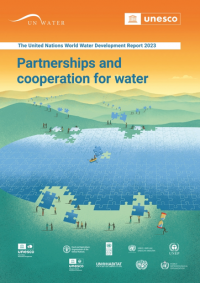Governance: A ‘Whole-of-Society’ Approach

Book CHAPTER 13: Governance’ – beyond ‘government’ – involves not only relevant government departments and agencies, but also the private sector and civil society. This chapter explains how a‘whole-of-society’ approach – involving civil society as well as the public and private sectors in the joint pursuit of common solutions to complex problems – contributes to building effective partnerships and cooperation. A whole-of-society approach embraces both formal and informal institutions in seeking a generalized agreement across society about policy goals and the means to achieve them. This chapter explores four key elements of this approach, each essential in building a solid path towards achieving the sixth Sustainable Development Goal (SDG 6) and the broader pursuits of water, food and climate security. Trust and hope are fundamental building blocks for social cohesion and security. Trust is the ‘lubricant’ needed to ‘grease the wheels’ of the economy, and hope can be the mortar that holds societies together.
Meaningful participation and inclusive stakeholder engagement take time but stand to generate trust and hope. Policy and project processes need to adapt to the concerns and potential contribution of different groups. Yet, openness, time and resources invested in the co-creation of a project, a policy or a whole-of-society agreement on an issue will greatly accelerate the desired behaviour change and cross-societal adherence to agreed pursuits.
Strategic integration of cross-sectoral and stakeholder concerns involves developing norms,standards and allocation methods that affect water use efficiency and the protection of resources across sectors. Individuals and organizations take decisions affecting the use and protection of water all the time. Strategic decision-making about policies and regulation sets framework conditions that give direction to these every-day decisions. Strategic integration and policy cohesion stand to make integrated water resources management (IWRM) more effective.
Good governance, where the ‘good’ includes qualities like transparency, accountability, professionalism and the capacity of public institutions, along with values of fairness, justice and the respect for human rights; and where ‘governance’ implies a recognition that it is not only governments but society as a whole that makes development happen.
